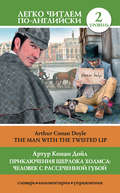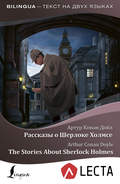
Артур Конан Дойл
The Great Boer War
There was only one thing which apparently should not have been done, and that was to attack him. His position was a formidable one. Not only were the banks of the river fringed with his riflemen under excellent cover, but from these banks there extended on each side a number of dongas, which made admirable natural trenches. The only possible attack from either side must be across a level plain at least a thousand or fifteen hundred yards in width, where our numbers would only swell our losses. It must be a bold soldier and a far bolder civilian, who would venture to question an operation carried out under the immediate personal direction of Lord Kitchener; but the general consensus of opinion among critics may justify that which might be temerity in the individual. Had Cronje not been tightly surrounded, the action with its heavy losses might have been justified as an attempt to hold him until his investment should be complete. There seems, however, to be no doubt that he was already entirely surrounded, and that, as experience proved, we had only to sit round him to insure his surrender. It is not given to the greatest man to have every soldierly gift equally developed, and it may be said without offence that Lord Kitchener's cool judgment upon the actual field of battle has not yet been proved as conclusively as his longheaded power of organisation and his iron determination.
Putting aside the question of responsibility, what happened on the morning of Sunday, February 18th, was that from every quarter an assault was urged across the level plains, to the north and to the south, upon the lines of desperate and invisible men who lay in the dongas and behind the banks of the river. Everywhere there was a terrible monotony about the experiences of the various regiments which learned once again the grim lessons of Colenso and Modder River. We surely did not need to prove once more what had already been so amply proved, that bravery can be of no avail against concealed riflemen well entrenched, and that the more hardy is the attack the heavier must be the repulse. Over the long circle of our attack Knox's brigade, Stephenson's brigade, the Highland brigade, Smith-Dorrien's brigade all fared alike. In each case there was the advance until they were within the thousand-yard fire zone, then the resistless sleet of bullets which compelled them to get down and to keep down. Had they even then recognised that they were attempting the impossible, no great harm might have been done, but with generous emulation the men of the various regiments made little rushes, company by company, towards the river bed, and found themselves ever exposed to a more withering fire. On the northern bank Smith-Dorrien's brigade, and especially the Canadian regiment, distinguished themselves by the magnificent tenacity with which they persevered in their attack. The Cornwalls of the same brigade swept up almost to the river bank in a charge which was the admiration of all who saw it. If the miners of Johannesburg had given the impression that the Cornishman is not a fighter, the record of the county regiment in the war has for ever exploded the calumny. Men who were not fighters could have found no place in Smith-Dorrien's brigade or in the charge of Paardeberg.
While the infantry had been severely handled by the Boer riflemen, our guns, the 76th, 81st, and 82nd field batteries, with the 65th howitzer battery, had been shelling the river bed, though our artillery fire proved as usual to have little effect against scattered and hidden riflemen. At least, however, it distracted their attention, and made their fire upon the exposed infantry in front of them less deadly. Now, as in Napoleon's time, the effect of the guns is moral rather than material. About midday French's horse-artillery guns came into action from the north. Smoke and flames from the dongas told that some of our shells had fallen among the wagons and their combustible stores.
The Boer line had proved itself to be unshakable on each face, but at its ends the result of the action was to push them up, and to shorten the stretch of the river which was held by them. On the north bank Smith-Dorrien's brigade gained a considerable amount of ground. At the other end of the position the Welsh, Yorkshire, and Essex regiments of Stephenson's brigade did some splendid work, and pushed the Boers for some distance down the river bank. A most gallant but impossible charge was made by Colonel Hannay and a number of mounted infantry against the northern bank. He was shot with the majority of his followers. General Knox of the 12th Brigade and General Macdonald of the Highlanders were among the wounded. Colonel Aldworth of the Cornwalls died at the head of his men. A bullet struck him dead as he whooped his West Countrymen on to the charge. Eleven hundred killed and wounded testified to the fire of our attack and the grimness of the Boer resistance. The distribution of the losses among the various battalions – eighty among the Canadians, ninety in the West Riding Regiment, one hundred and twenty in the Seaforths, ninety in the Yorkshires, seventy-six in the Argyll and Sutherlands, ninety-six in the Black Watch, thirty-one in the Oxfordshires, fifty-six in the Cornwalls, forty-six in the Shropshires – shows how universal was the gallantry, and especially how well the Highland Brigade carried itself. It is to be feared that they had to face, not only the fire of the enemy, but also that of their own comrades on the further side of the river. A great military authority has stated that it takes many years for a regiment to recover its spirit and steadiness if it has been heavily punished, and yet within two months of Magersfontein we find the indomitable Highlanders taking without flinching the very bloodiest share of this bloody day – and this after a march of thirty miles with no pause before going into action. A repulse it may have been, but they hear no name of which they may be more proud upon the victory scroll of their colours.
What had we got in return for our eleven hundred casualties? We had contracted the Boer position from about three miles to less than two. So much was to the good, as the closer they lay the more effective our artillery fire might be expected to be. But it is probable that our shrapnel alone, without any loss of life, might have effected the same thing. It is easy to be wise after the event, but it does certainly appear that with our present knowledge the action at Paardeberg was as unnecessary as it was expensive. The sun descended on Sunday, February 18th, upon a bloody field and crowded field hospitals, but also upon an unbroken circle of British troops still hemming in the desperate men who lurked among the willows and mimosas which drape the brown steep banks of the Modder.
There was evidence during the action of the presence of an active Boer force to the south of us, probably the same well-handled and enterprising body which had captured our convoy at Waterval. A small party of Kitchener's Horse was surprised by this body, and thirty men with four officers were taken prisoners. Much has been said of the superiority of South African scouting to that of the British regulars, but it must be confessed that a good many instances might be quoted in which the colonials, though second to none in gallantry, have been defective in that very quality in which they were expected to excel.
This surprise of our cavalry post had more serious consequences than can be measured by the loss of men, for by it the Boers obtained possession of a strong kopje called Kitchener's Hill, lying about two miles distant on the south-east of our position. The movement was an admirable one strategically upon their part, for it gave their beleaguered comrades a first station on the line of their retreat. Could they only win their way to that kopje, a rearguard action might be fought from there which would cover the escape of at least a portion of the force. De Wet, if he was indeed responsible for the manoeuvres of these Southern Boers, certainly handled his small force with a discreet audacity which marks him as the born leader which he afterwards proved himself to be.
If the position of the Boers was desperate on Sunday, it was hopeless on Monday, for in the course of the morning Lord Roberts came up, closely followed by the whole of Tucker's Division (7th) from Jacobsdal. Our artillery also was strongly reinforced. The 18th, 62nd, and 75th field batteries came up with three naval 4.7 guns and two naval 12-pounders. Thirty-five thousand men with sixty guns were gathered round the little Boer army. It is a poor spirit which will not applaud the supreme resolution with which the gallant farmers held out, and award to Cronje the title of one of the most grimly resolute leaders of whom we have any record in modern history.
For a moment it seemed as if his courage was giving way. On Monday morning a message was transmitted by him to Lord Kitchener asking for a twenty-four hours' armistice. The answer was of course a curt refusal. To this he replied that if we were so inhuman as to prevent him from burying his dead there was nothing for him save surrender. An answer was given that a messenger with power to treat should be sent out, but in the interval Cronje had changed his mind, and disappeared with a snarl of contempt into his burrows. It had become known that women and children were in the laager, and a message was sent offering them a place of safety, but even to this a refusal was given. The reasons for this last decision are inconceivable.
Lord Roberts's dispositions were simple, efficacious, and above all bloodless. Smith-Dorrien's brigade, who were winning in the Western army something of the reputation which Hart's Irishmen had won in Natal, were placed astride of the river to the west, with orders to push gradually up, as occasion served, using trenches for their approach. Chermside's brigade occupied the same position on the east. Two other divisions and the cavalry stood round, alert and eager, like terriers round a rat-hole, while all day the pitiless guns crashed their common shell, their shrapnel, and their lyddite into the river-bed. Already down there, amid slaughtered oxen and dead horses under a burning sun, a horrible pest-hole had been formed which sent its mephitic vapours over the countryside. Occasionally the sentries down the river saw amid the brown eddies of the rushing water the floating body of a Boer which had been washed away from the Golgotha above. Dark Cronje, betrayer of Potchefstroom, iron-handed ruler of natives, reviler of the British, stern victor of Magersfontein, at last there has come a day of reckoning for you!
On Wednesday, the 21st, the British, being now sure of their grip of Cronje, turned upon the Boer force which had occupied the hill to the south-east of the drift. It was clear that this force, unless driven away, would be the vanguard of the relieving army which might be expected to assemble from Ladysmith, Bloemfontein, Colesberg, or wherever else the Boers could detach men. Already it was known that reinforcements who had left Natal whenever they heard that the Free State was invaded were drawing near. It was necessary to crush the force upon the hill before it became too powerful. For this purpose the cavalry set forth, Broadwood with the 10th Hussars, 12th Lancers, and two batteries going round on one side, while French with the 9th and 16th Lancers, the Household Cavalry, and two other batteries skirted the other. A force of Boers was met and defeated, while the defenders of the hill were driven off with considerable loss. In this well-managed affair the enemy lost at least a hundred, of whom fifty were prisoners. On Friday, February 23rd, another attempt at rescue was made from the south, but again it ended disastrously for the Boers. A party attacked a kopje held by the Yorkshire regiment and were blown back by a volley, upon which they made for a second kopje, where the Buffs gave them an even rougher reception. Eighty prisoners were marched in. Meantime hardly a night passed that some of the Boers did not escape from their laager and give themselves up to our pickets. At the end of the week we had taken six hundred in all.
In the meantime the cordon was being drawn ever tighter, and the fire became heavier and more deadly, while the conditions of life in that fearful place were such that the stench alone might have compelled surrender. Amid the crash of tropical thunderstorms, the glare of lightning, and the furious thrashing of rain there was no relaxation of British vigilance. A balloon floating overhead directed the fire, which from day to day became more furious, culminating on the 26th with the arrival of four 5-inch howitzers. But still there came no sign from the fierce Boer and his gallant followers. Buried deep within burrows in the river bank the greater part of them lay safe from the shells, but the rattle of their musketry when the outposts moved showed that the trenches were as alert as ever. The thing could only have one end, however, and Lord Roberts, with admirable judgment and patience, refused to hurry it at the expense of the lives of his soldiers.
The two brigades at either end of the Boer lines had lost no chance of pushing in, and now they had come within striking distance. On the night of February 26th it was determined that Smith-Dorrien's men should try their luck. The front trenches of the British were at that time seven hundred yards from the Boer lines. They were held by the Gordons and by the Canadians, the latter being the nearer to the river. It is worth while entering into details as to the arrangement of the attack, as the success of the campaign was at least accelerated by it. The orders were that the Canadians were to advance, the Gordons to support, and the Shropshires to take such a position on the left as would outflank any counter attack upon the part of the Boers. The Canadians advanced in the darkness of the early morning before the rise of the moon. The front rank held their rifles in the left hand and each extended right hand grasped the sleeve of the man next it. The rear rank had their rifles slung and carried spades. Nearest the river bank were two companies (G and H.) who were followed by the 7th company of Royal Engineers carrying picks and empty sand bags. The long line stole through a pitchy darkness, knowing that at any instant a blaze of fire such as flamed before the Highlanders at Magersfontein might crash out in front of them. A hundred, two, three, four, five hundred paces were taken. They knew that they must be close upon the trenches. If they could only creep silently enough, they might spring upon the defenders unannounced. On and on they stole, step by step, praying for silence. Would the gentle shuffle of feet be heard by the men who lay within stone-throw of them? Their hopes had begun to rise when there broke upon the silence of the night a resonant metallic rattle, the thud of a falling man, an empty clatter! They had walked into a line of meat-cans slung upon a wire. By measurement it was only ninety yards from the trench. At that instant a single rifle sounded, and the Canadians hurled themselves down upon the ground. Their bodies had hardly touched it when from a line six hundred yards long there came one furious glare of rifle fire, with a hiss like water on a red-hot plate, of speeding bullets. In that terrible red light the men as they lay and scraped desperately for cover could see the heads of the Boers pop up and down, and the fringe of rifle barrels quiver and gleam. How the regiment, lying helpless under this fire, escaped destruction is extraordinary. To rush the trench in the face of such a continuous blast of lead seemed impossible, and it was equally impossible to remain where they were. In a short time the moon would be up, and they would be picked off to a man. The outer companies upon the plain were ordered to retire. Breaking up into loose order, they made their way back with surprisingly little loss; but a strange contretemps occurred, for, leaping suddenly into a trench held by the Gordons, they transfixed themselves upon the bayonets of the men. A subaltern and twelve men received bayonet thrusts – none of them fortunately of a very serious nature.
While these events had been taking place upon the left of the line, the right was hardly in better plight. All firing had ceased for the moment – the Boers being evidently under the impression that the whole attack had recoiled. Uncertain whether the front of the small party on the right of the second line (now consisting of some sixty-five Sappers and Canadians lying in one mingled line) was clear for firing should the Boers leave their trenches, Captain Boileau, of the Sappers, crawled forward along the bank of the river, and discovered Captain Stairs and ten men of the Canadians, the survivors of the firing line, firmly ensconced in a crevice of the river bank overlooking the laager, quite happy on being reassured as to the proximity of support. This brought the total number of the daring band up to seventy-five rifles. Meanwhile, the Gordons, somewhat perplexed by the flying phantoms who had been flitting into and over their trenches for the past few minutes, sent a messenger along the river bank to ascertain, in their turn, if their own front was clear to fire, and if not, what state the survivors were in. To this message Colonel Kincaid, R.E., now in command of the remains of the assaulting party, replied that his men would be well entrenched by daylight. The little party had been distributed for digging as well as the darkness and their ignorance of their exact position to the Boers would permit. Twice the sound of the picks brought angry volleys from the darkness, but the work was never stopped, and in the early dawn the workers found not only that they were secure themselves, but that they were in a position to enfilade over half a mile of Boer trenches. Before daybreak the British crouched low in their shelter, so that with the morning light the Boers did not realise the change which the night had wrought. It was only when a burgher was shot as he filled his pannikin at the river that they understood how their position was overlooked. For half an hour a brisk fire was maintained, at the end of which time a white flag went up from the trench. Kincaid stood up on his parapet, and a single haggard figure emerged from the Boer warren. 'The burghers have had enough; what are they to do?' said he. As he spoke his comrades scrambled out behind him and came walking and running over to the British lines. It was not a moment likely to be forgotten by the parched and grimy warriors who stood up and cheered until the cry came crashing back to them again from the distant British camps. No doubt Cronje had already realised that the extreme limit of his resistance was come, but it was to that handful of Sappers and Canadians that the credit is immediately due for that white flag which fluttered on the morning of Majuba Day over the lines of Paardeberg.
It was six o'clock in the morning when General Pretyman rode up to Lord Roberts's headquarters. Behind him upon a white horse was a dark-bearded man, with the quick, restless eyes of a hunter, middle-sized, thickly built, with grizzled hair flowing from under a tall brown felt hat. He wore the black broadcloth of the burgher with a green summer overcoat, and carried a small whip in his hands. His appearance was that of a respectable London vestryman rather than of a most redoubtable soldier with a particularly sinister career behind him.
The Generals shook hands, and it was briefly intimated to Cronje that his surrender must be unconditional, to which, after a short silence, he agreed. His only stipulations were personal, that his wife, his grandson, his secretary, his adjutant, and his servant might accompany him. The same evening he was despatched to Cape Town, receiving those honourable attentions which were due to his valour rather than to his character. His men, a pallid ragged crew, emerged from their holes and burrows, and delivered up their rifles. It is pleasant to add that, with much in their memories to exasperate them, the British privates treated their enemies with as large-hearted a courtesy as Lord Roberts had shown to their leader. Our total capture numbered some three thousand of the Transvaal and eleven hundred of the Free State. That the latter were not far more numerous was due to the fact that many had already shredded off to their farms. Besides Cronje, Wolverans of the Transvaal, and the German artillerist Albrecht, with forty-four other field-cornets and commandants, fell into our hands. Six small guns were also secured. The same afternoon saw the long column of the prisoners on its way to Modder River, there to be entrained for Cape Town, the most singular lot of people to be seen at that moment upon earth – ragged, patched, grotesque, some with goloshes, some with umbrellas, coffee-pots, and Bibles, their favourite baggage. So they passed out of their ten days of glorious history.
A visit to the laager showed that the horrible smells which had been carried across to the British lines, and the swollen carcasses which had swirled down the muddy river were true portents of its condition. Strong-nerved men came back white and sick from a contemplation of the place in which women and children had for ten days been living. From end to end it was a festering mass of corruption, overshadowed by incredible swarms of flies. Yet the engineer who could face evil sights and nauseous smells was repaid by an inspection of the deep narrow trenches in which a rifleman could crouch with the minimum danger from shells, and the caves in which the non-combatants remained in absolute safety. Of their dead we have no accurate knowledge, but two hundred wounded in a donga represented their losses, not only during a bombardment of ten days, but also in that Paardeberg engagement which had cost us eleven hundred casualties. No more convincing example could be adduced both of the advantage of the defence over the attack, and of the harmlessness of the fiercest shell fire if those who are exposed to it have space and time to make preparations.
A fortnight had elapsed since Lord Roberts had launched his forces from Ramdam, and that fortnight had wrought a complete revolution in the campaign. It is hard to recall any instance in the history of war where a single movement has created such a change over so many different operations. On February 14th Kimberley was in danger of capture, a victorious Boer army was facing Methuen, the lines of Magersfontein appeared impregnable, Clements was being pressed at Colesberg, Gatacre was stopped at Stormberg, Buller could not pass the Tugela, and Ladysmith was in a perilous condition. On the 28th Kimberley had been relieved, the Boer army was scattered or taken, the lines of Magersfontein were in our possession, Clements found his assailants retiring before him, Gatacre was able to advance at Stormberg, Buller had a weakening army in front of him, and Ladysmith was on the eve of relief. And all this had been done at the cost of a very moderate loss of life, for most of which Lord Roberts was in no sense answerable. Here at last was a reputation so well founded that even South African warfare could only confirm and increase it. A single master hand had in an instant turned England's night to day, and had brought us out of that nightmare of miscalculation and disaster which had weighed so long upon our spirits. His was the master hand, but there were others at his side without whom that hand might have been paralysed: Kitchener the organiser, French the cavalry leader – to these two men, second only to their chief, are the results of the operations due. Henderson, the most capable head of Intelligence, and Richardson, who under all difficulties fed the army, may each claim his share in the success.






